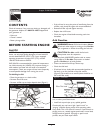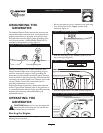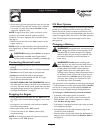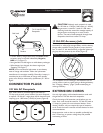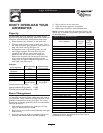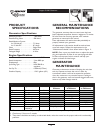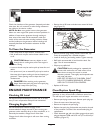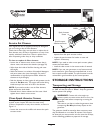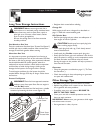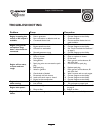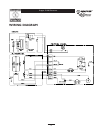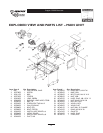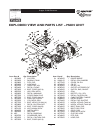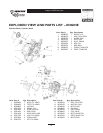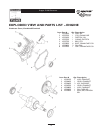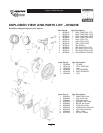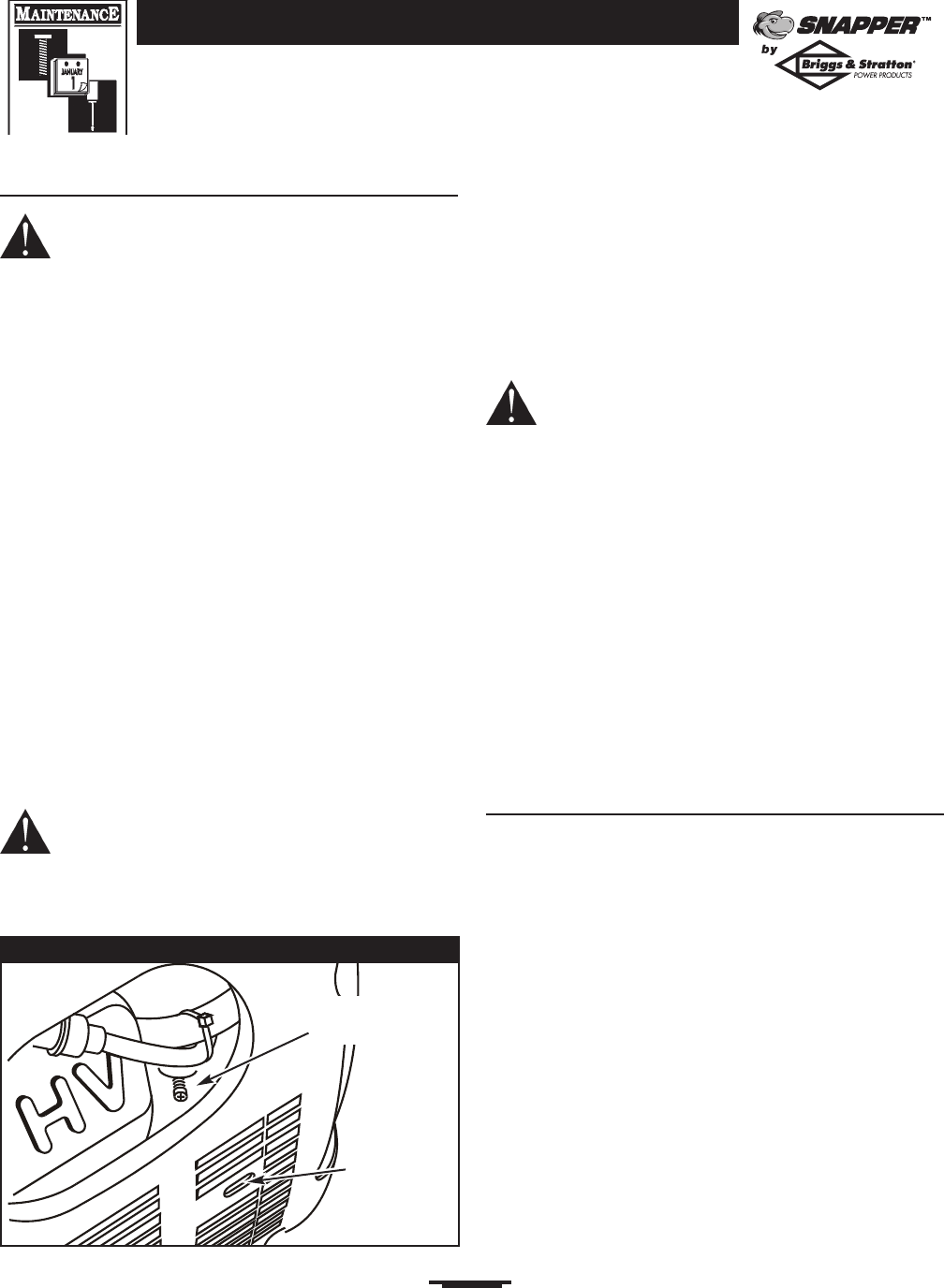
Long Term Storage Instructions
WARNING! Never store engine with fuel in
tank indoors or in enclosed, poorly ventilated areas
where fumes may reach an open flame, spark or
pilot light as on a furnace, water heater, clothes
dryer or other gas appliance.
Be sure the storage area is free from excessive
humidity and dust.
One Month to One Year
Drain the carburetor float bowl (see “Protect Fuel System”)
and fuel tank into a suitable container. After removal from
storage, fill with fresh gasoline before starting.
More than One Year
It is important to prevent gum deposits from forming in
essential fuel system parts such as the carburetor, fuel filter,
fuel hose or tank during storage. Also, experience indicates
that alcohol-blended fuels (called gasohol, ethanol or
methanol) can attract moisture, which leads to separation
and formation of acids during storage. Acidic gas can
damage the fuel system of an engine while in storage.
To avoid engine problems, the fuel system should be
emptied before storage of 30 days or longer. Follow these
instructions:
Protect Fuel System
WARNING! Drain fuel into approved container
outdoors, away from open flame. Be sure engine is
cool. Do Not smoke.
• Drain carburetor float bowl and fuel tank into a suitable
container by loosening the drain screw (Figure 15).
• Retighten drain screw before refueling.
Change Oil
While engine is still warm, change oil as described on
page 11. Refill with recommended grade.
Oil Cylinder Bore
• Remove spark plug and pour about one tablespoon of
clean engine oil into the cylinder.
CAUTION! Avoid spray from spark plug hole
when cranking engine slowly.
• Cover spark plug hole with rag. Crank slowly several
times to distribute oil.
• Install spark plug. Do Not connect spark plug wire.
• Slowly pull the starter grip until resistance is felt. At this
point, the piston is coming up on its compression stroke
and both the intake and exhaust valves are closed.
Storing the engine in this position will help to protect it
from internal corrosion.
Generator
• Clean the generator as outlined on page 11 (“To Clean
the Generator”).
• Check that cooling air slots and openings on generator
are open and unobstructed.
Other Storage Tips
• Do Not store gasoline from one season to another.
• Replace the gasoline can if it starts to rust. Rust and/or
dirt in gasoline will cause problems.
• If possible, store your unit indoors. BE SURE TO
EMPTY THE FUEL TANK.
• Cover your unit with a suitable protective cover that
does not retain moisture.
IMPORTANT: Never cover your generator while engine
and exhaust area are warm.
• Store generator in clean, dry area.
13
Snapper G1000 Generator
Carburetor Fuel
Drain Screw
Drain Screw
Access Hole
Figure 15 – Drain Fuel From Carburetor



